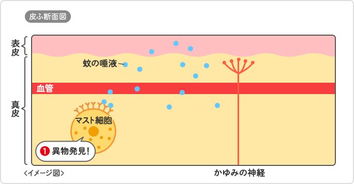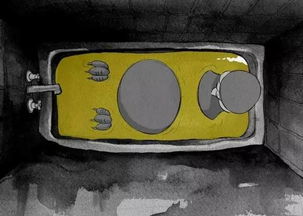
Understanding the Dangers of an Infected Insect Bite
Have you ever experienced the discomfort of an insect bite? While most bites are harmless and heal quickly, some can lead to serious infections. In this article, we will delve into the details of an infected insect bite, exploring its causes, symptoms, treatment, and prevention methods. By the end, you’ll have a comprehensive understanding of this common yet potentially dangerous condition.
Causes of an Infected Insect Bite

An infected insect bite occurs when bacteria enter the skin through the bite wound. This can happen due to various factors, including:
-
Unsterilized environment: If the insect bite occurs in an unclean environment, such as a dirty park or garden, the risk of infection increases.
-
Weak immune system: Individuals with weakened immune systems, such as those with HIV/AIDS, cancer, or diabetes, are more susceptible to infections.
-
Long-lasting bite: A bite that remains open for an extended period of time provides more opportunities for bacteria to enter the skin.
-
Hard-to-clean bite: Some insect bites, such as those from ticks or bed bugs, are difficult to clean thoroughly, increasing the risk of infection.
Common Insects That Cause Infected Bites

Several insects can cause infected bites, including:
-
mosquitoes
-
ticks
-
bed bugs
-
bees and wasps
-
spiders
While some of these insects, like mosquitoes and ticks, are more likely to transmit diseases, all can cause infected bites if proper care is not taken.
Symptoms of an Infected Insect Bite

Recognizing the symptoms of an infected insect bite is crucial for prompt treatment. Common symptoms include:
-
Redness and swelling around the bite area
-
Pain, tenderness, or itching
-
Pus or discharge from the bite
-
Fever or chills
-
Lymph nodes near the bite becoming swollen and tender
In some cases, the infection may spread to other parts of the body, leading to more severe symptoms such as cellulitis or sepsis.
Treatment for an Infected Insect Bite
When dealing with an infected insect bite, it’s essential to seek medical attention promptly. Treatment may include:
-
Antibiotics: To combat the bacterial infection, your doctor may prescribe oral or topical antibiotics.
-
Pain relievers: Over-the-counter pain relievers, such as ibuprofen or acetaminophen, can help alleviate pain and reduce inflammation.
-
Warm compresses: Applying a warm compress to the bite area can help reduce swelling and pain.
-
Lifestyle changes: In some cases, your doctor may recommend lifestyle changes, such as elevating the affected area or avoiding scratching the bite.
In severe cases, hospitalization may be necessary to manage the infection and its complications.
Preventing Infected Insect Bites
Preventing infected insect bites is essential for maintaining your health. Here are some tips to help you stay safe:
-
Use insect repellent: Apply insect repellent containing DEET, picaridin, or oil of lemon eucalyptus to exposed skin and clothing.
-
Wear protective clothing: When spending time in areas with a high risk of insect bites, wear long-sleeved shirts, pants, and socks.
-
Check for ticks: After spending time in tick-infested areas, inspect your clothing and body for ticks, especially in areas with folds or creases.
-
Keep your home clean: Regularly vacuum and clean your home to reduce the risk of bed bug infestations.
-
Remove standing water: Eliminate standing water around your home, as it can attract



